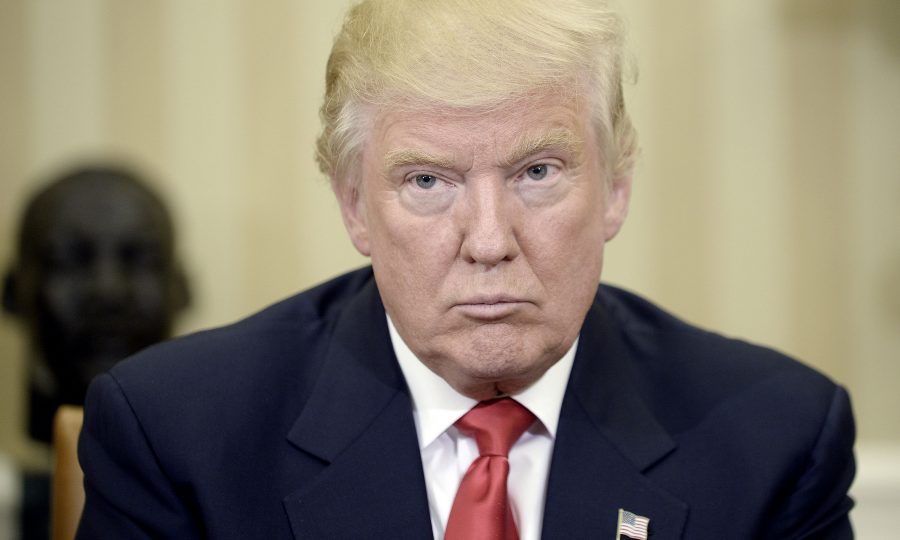Election dissection: SIU experts weigh in on Trump, Republican state legislative wins
Then President-elect Donald Trump looks on in the Oval Office of the White House on Thursday, Nov. 10, 2016 during a meeting with U.S. President Barack Obama in their first public step toward a transition of power in Washington, D.C. (Olivier Douliery/Abaca Press/TNS)
November 11, 2016
As the American political establishment tries to stabilize after being shaken by the unexpected victory of President-elect Donald Trump, many are left with the same question.
How did this happen?
The Daily Egyptian talked to political pundits on campus to hear their assessments of the events leading up to the election that led to the country’s new leadership.
Advertisement
A major factor was the low turnout from registered Democratic voters, said John Jackson, an SIU emeritus professor of political science.
Jackson attributed low turnout to a lack of excitement from voters about Hillary Clinton as a candidate.
Clinton’s disapproval rating among voters was 54 percent in November, while Trump’s was 58 percent, according to the last polling averages from Real Clear Politics.
“Nobody has ever accused Hillary Clinton of being charismatic,” Jackson said.
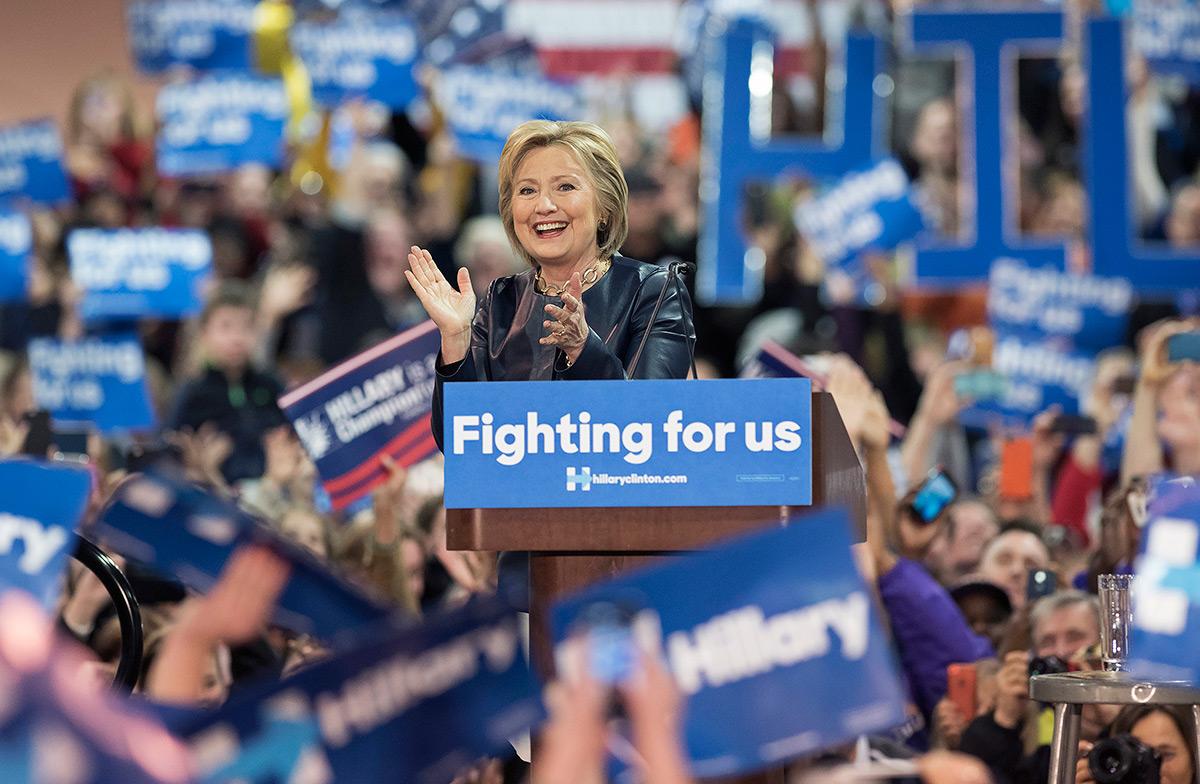
The opposite could be said of Trump, whose campaign was built on ideas such as a wall that would stretch across the U.S.-Mexico border and mass deportation of illegal immigrants.
“That’s what makes people pay attention,” Jackson said.
Virginia Tilley, a professor of political science, agreed.
Advertisement*
Tilley said Trump’s perceived success as a businessman may have made him something of an idol to the average American voter.
“He represents an American dream of sorts for some people,” Tilley said.
But, she added, much of Trump’s support was fueled by white supremacy.
Whites still make up 69 percent of the nation’s electorate, according to the Pew Research Center’s analysis of the voting population. The Edison Research for the National Election Pool shows Donald Trump won 58 percent of those white voters.
Of white women voters with no college degree, Trump received 62 percent of votes. White men with no college degree also overwhelmingly favored the Republican candidate, with 72 percent of votes going to Trump.
“For his followers, the idea of making the country great again is making it white again,” Tilley said.
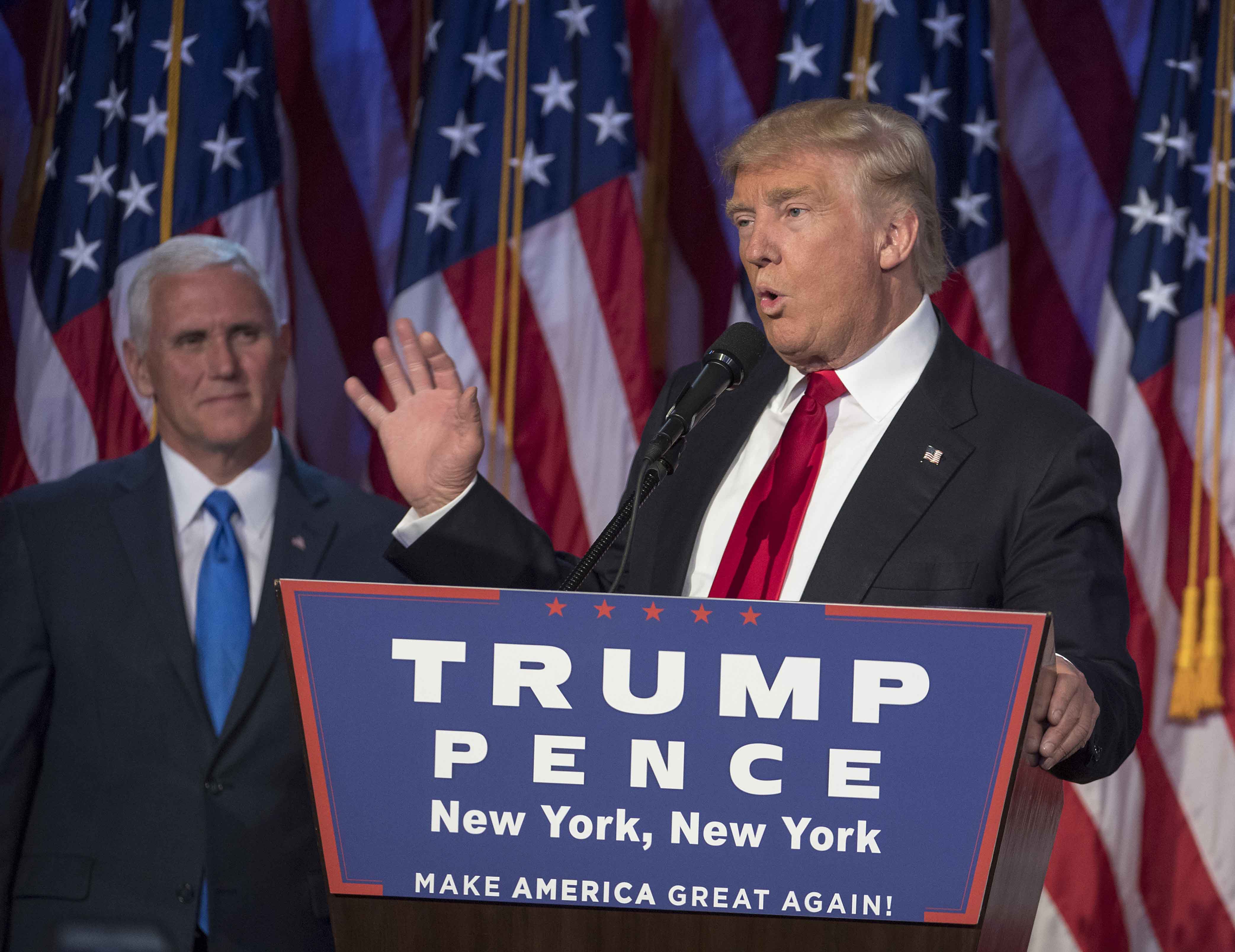
In a statement issued Wednesday, the president-elect pledged to “begin removing the more than 2 million criminal illegal immigrants from the country and cancel visas to foreign countries that won’t take them back” during his first 100 days in office.
Trump’s anti-immigration rhetoric played into the fears of this demographic, Jackson said.
“He appeals to the fearful and the anxious,” he said. “These people are threatened by diversity.”
In certain parts of the country, especially those parts dominated by white voters, anxiety about employment is particularly prevalent, Tilley said.
“‘Other people are taking our jobs’ is a simple, easy-to-understand notion,” Tilley said. “The Republicans tell them, ‘It’s not your fault, it’s these foreigners.’”
Jackson said the Clinton campaign failed when it didn’t spend more time appealing to white voters on the campaign trail, especially in battleground states like Pennsylvania.
“When Trump won big with 70 percent of voters, Clinton had a heck of a mountain to climb,” he said. “It doesn’t matter if she got all the black vote and all the Hispanic vote, she still couldn’t get there.”
Jackson said the white demographic tends to have more traditional views, which may have also led to a hesitancy electing a woman president.
“Whether they admit it or not, their view is the president is a man,” Jackson said. “President Trump is as macho-man as it gets.”
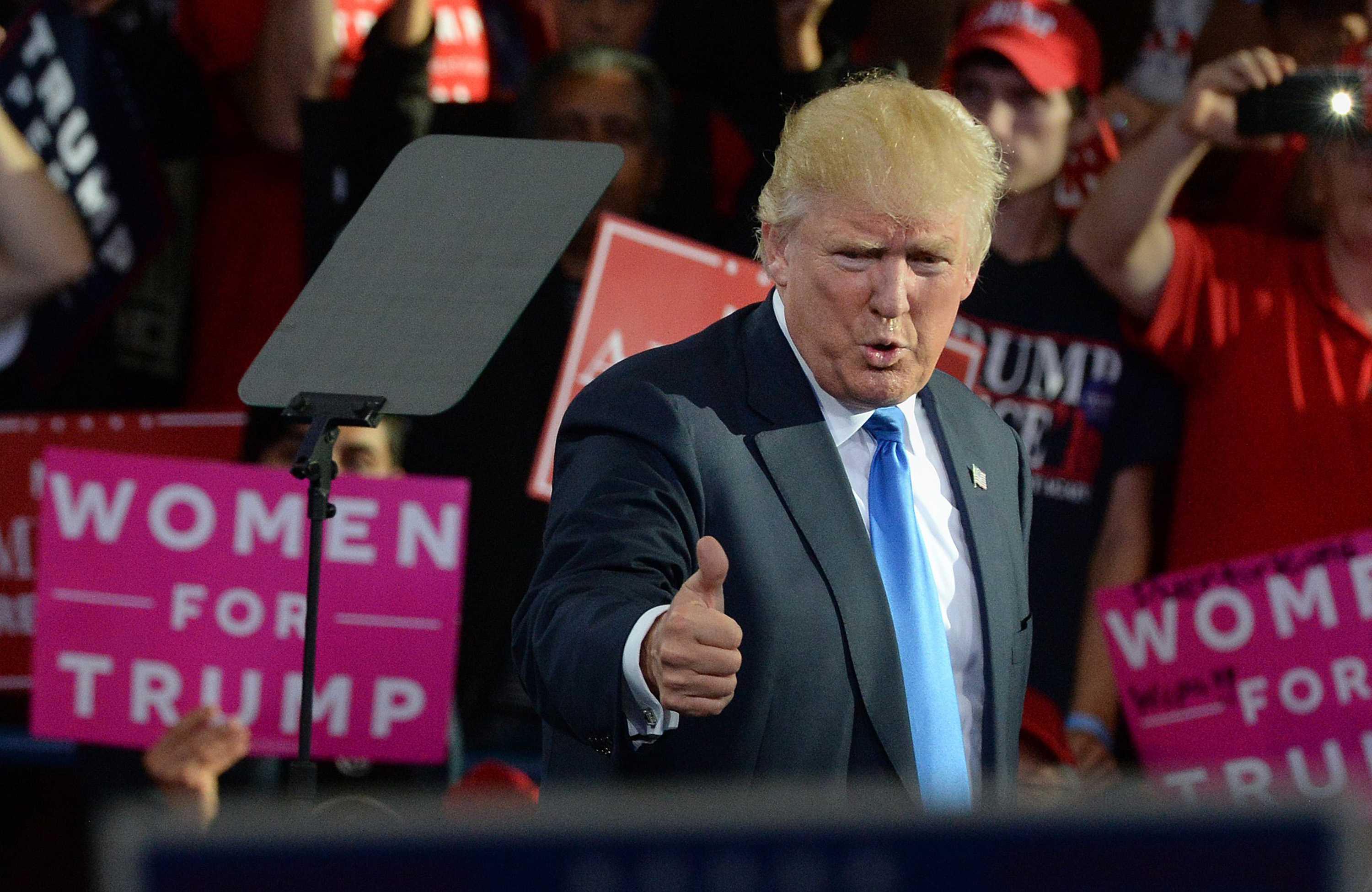
Clinton ultimately failed in her presidential bid because voters didn’t trust her, Jackson said.
Less than two weeks before the election, FBI Director James Comey wrote a letter to Congress saying the bureau was reopening its investigation of Clinton’s private email server. Though Comey announced two days before the election nothing new was uncovered to warrant further prosecution, the damage had already been done.
“It doesn’t matter that nothing was found,” Tilley said. “What matters is she was unable overcome this notion that she was untrustworthy.”
Jackson said this re-investigation caused late-deciders to make up their minds in Trump’s favor. It also negatively impacted the leads of Democratic congressional candidates.
“Everything stopped cold for the blue guys,” Jackson said. “Democrats lost the Senate the day Comey came out with that letter.”
But it wasn’t just that American voters didn’t trust Clinton — a general apprehension toward career politicians and the government was at play too, which Tilley said the Republican Party used to their advantage.
The businessman-turned-reality-TV-star-turned-politician often touted his lack of experience in government, saying his goal as president is to “drain the swamp” of career Washington politicians. This was a stark contrast with Clinton, who has been active in politics since 1993.
“[Republicans] create a distrust in government in the eyes of the American public,” Tilley said. “Then they can step up and say, ‘We are the solution.’”
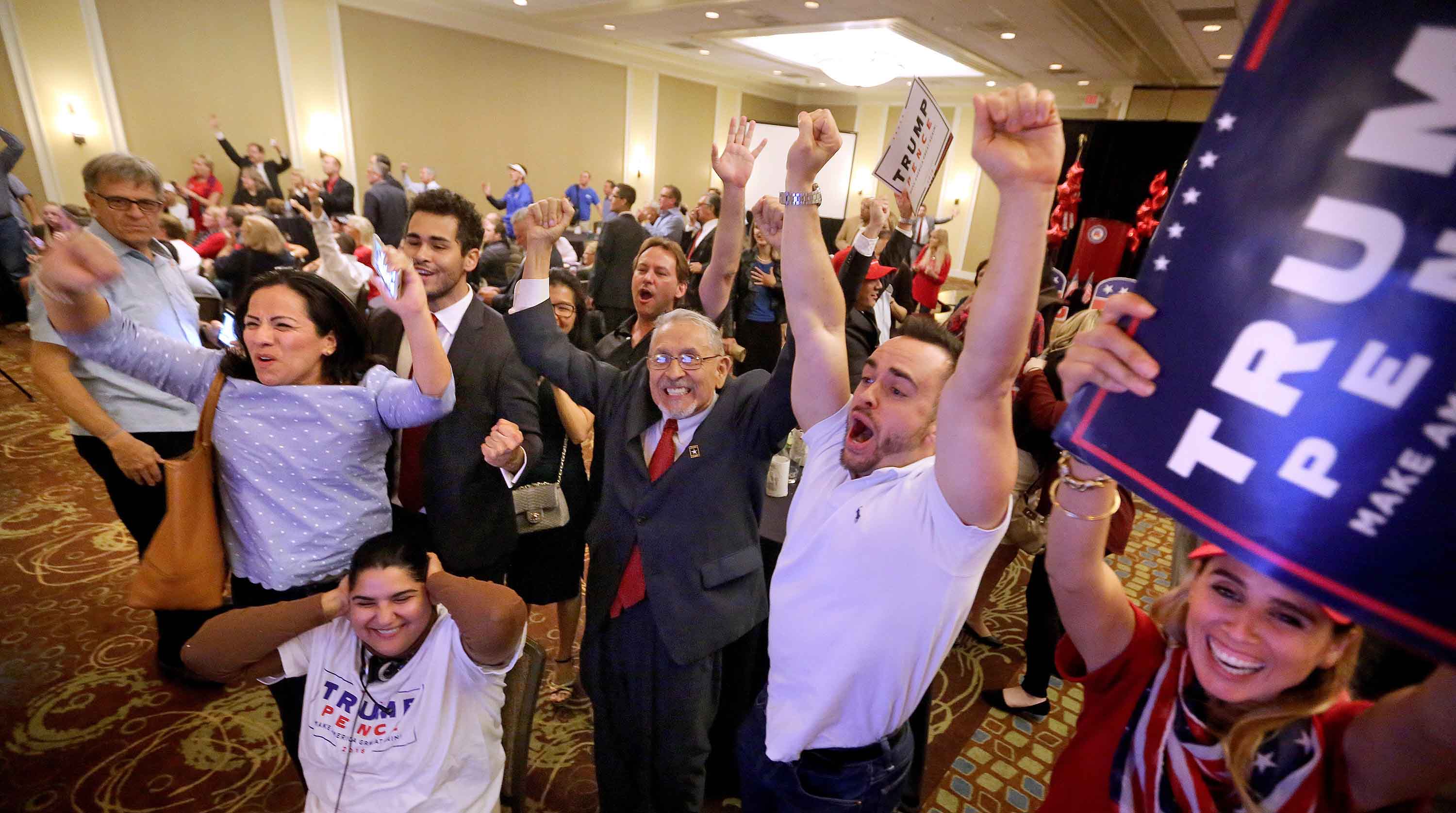
While much of the focus has been on the presidency, Trump’s success nationwide affected some legislative races closer to home, said Jak Tichenor, interim director of the Paul Simon Public Policy Institute.
In almost every county in southern Illinois — excluding Jackson County and St. Clair County — Trump supporters showed up in droves, causing him to win by significant margins. This impacted two local races in particular.
“The Trump headwind had a very dramatic impact on Gary Forby’s and John Bradley’s defeats,” Tichenor said.
Rep. Bradley, D-Marion, of the Illinois 117th House District has served in Springfield since 2003. Bradley lost to Republican challenger Dave Severin, a business owner from Benton.
In the Illinois Senate, Democratic incumbent Forby, who was first elected to state legislative office in 2001, was defeated by Harrisburg mayor Dale Fowler in the 59th district.
Trump “made life difficult” for Democratic candidates across the state, Tichenor said.
Republicans made net gains in both the Illinois House and Senate, picking up three seats and two seats respectively. But, Tichenor said, the top-ticket Republican candidate wasn’t the only deciding factor in the state races.
These victories can also be attributed to the negative ads lobbed at Democrats from Republican Gov. Bruce Rauner and his supporters. In these ads, Republicans tied Forby and Bradley to Democratic House Speaker Mike Madigan, whose political career has been roundly criticized by the Illinois GOP.
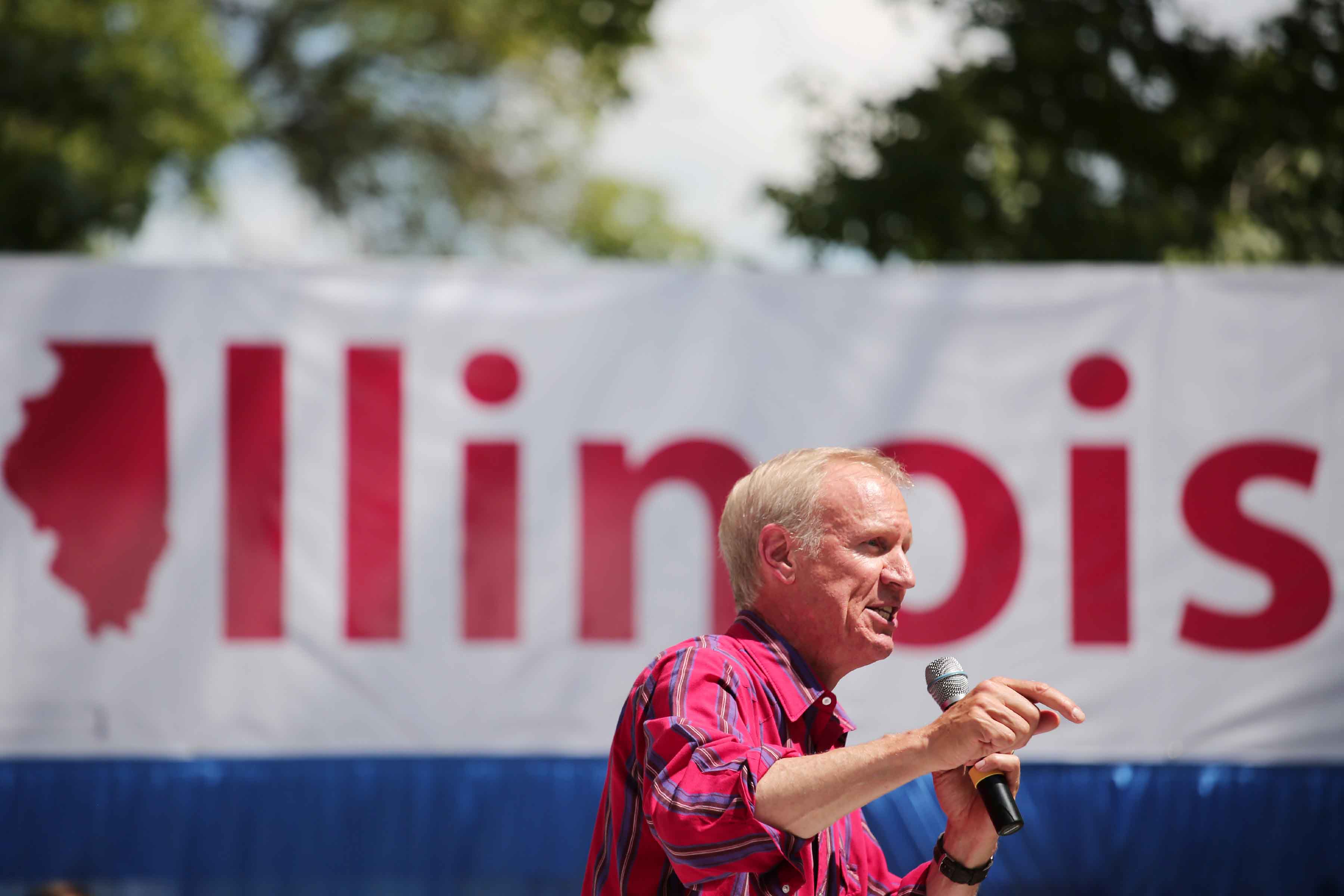
A poll conducted by the Paul Simon Public Policy Institute from Sept. 27 to Oct. 2 found Madigan had a 63 percent disapproval rating, compared with Rauner’s 55 percent disapproval rating.
Republicans used this as leverage to oust the longtime Democratic legislators, Tichenor said, which is significant because once state legislative seats flip, they tend to remain flipped for a long time.
No matter which factor was the main culprit in the Democratic losses, Tichenor said everyone was “knocked off their feet” by the incumbent failures.
Staff writer Marnie Leonard can be reached at [email protected] or on Twitter @marsuzleo.
To stay up to date with all your southern Illinois news, follow the Daily Egyptian on Facebook and Twitter.
Advertisement



